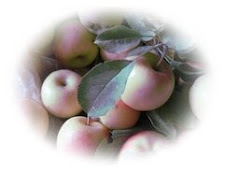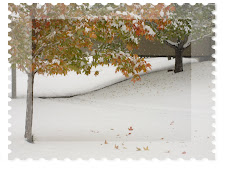Brined Dill Pickles (naturally fermented without vinegar)... Romanian Castraveti Murati. I went to the farmer's market recently. My eyes lingered at the various sized bags of pickling cucumbers laid out on the table. I hadn't made pickles in such a long time. Wouldn't it be nice to make some pickles? There were plenty of bagged cucumbers, some big, some small... and then I spotted a medium sized bag. It would be just perfect for us. How I missed the homemade pickle version I grew up with. The pickles my mom made were brined without any added vinegar. I loved those. Back then as a kid, I didn't realize how healthy the natural fermented pickles were for me....
So I bought a few spices to add to the brine and then got to work. Made delicious pickles within a week! I know, within a week. It sounds strange, but those lovely fresh cucumbers turned into sour pickles before the week was over and I couldn't believe how good they were. And there's no vinegar involved... and no yellow food coloring for that matter:)... So totally worth it. My husband just loved these!
The pickles are easy to make... well, as long as a few precautions are taken. First, cucumbers should be fresh without blemishes(and without showing any sign of rotting, I found a few:)). Second, jars must be clean and sterilized. Thirdly, non-iodized salt is mandatory, so use kosher salt or pickling salt. Lastly, cucumbers must remain submerged under the brine at all times, failing to do so will cause spoilage. Spices can be adjusted to taste. You can make spicy pickles by increasing the chile flakes, or you can make a non spicy version by omitting the chile altogether. Pickles can be made with just dill, garlic and peppercorns... but the celery seed and mustard seed add a special touch.
I should mention the amount of salt to water is what I use for all my pickling... I find the salt isn't overpowering. However, if you like yours a bit saltier you may opt to add an extra tablespoon or two of salt to the gallon of water . Also, I've mentioned in the directions below that I didn't use all of my brine... I made a bit more than I needed thinking I would use a single container. Last minute I decided to place the cucumbers in jars rather than a large crock and found myself with 1/2 of the brine leftover. You can make only half the brine, but I figure it's always best to have more than enough:). In any case, I thought to share this recipe in case you find yourself at the farmer's market eyeing pickling cucumbers. Hope you enjoy...
Note: It is important to cut the blossom end on each cucumber... the blossom end has an enzyme that makes the pickles soft.
You will need:
Note: I did not use all the salt water( maybe used half of it), as I packed my cucumbers in various sized jars. But you may need all the salt water... especially if you are using a large crock. Also, you will need the extra water if using filled bags to keep cucumbers submerged in the crock.
4 lbs fresh small pickling cucumbers(3-4 inch)
16 cups(1 gallon) filtered water
1/2 cup(8 TBS) kosher salt( NOT iodized salt)
2 garlic cloves, thinly sliced
1 small bunch of dill
celery seed (about 1/2 tsp)
mustard seed (about 1 tsp)
peppercorns( about 1-2 TBS)
chile flakes, to taste
Additional:
Large pickling crock or sterilized glass jars
Directions:
1. Fill sink with plenty of water and drop the cucumbers in water. Wash cucumbers well... it is important to remove all the dirt. Rinse well.
2. Using a small knife, cut about 1/8-1/4 inch off the cucumber top, the blossom end. This is important... leaving the blossom end, will make for mushy pickles. The blossom end has an enzyme that causes the cucumber to go soft.
3. Combine the salt and water in a large pot and stir until the salt has dissolved.
4. Depending on the container/s you will be using, you will need to divide spices accordingly in each jar.
If using one single pickling crock:
~ a. Add all the spices(this can be adjusted to taste) and dill to the bottom of a pickling crock. Then add the cucumbers to the crock on top of the spices and dill. Pour the brine mixture(salt and water) over the cucumbers to completely cover by an inch or so.
~ b. Pour any remaining brine in a ziploc bag and seal.
~ c. Place the bag with brine on top of the pickles... so that the cucumbers are completely submerged in the brine. Set the crock in a cool place.
If using various sized jars( My Method): Divide spices accordingly for each jar. Use a bit less of the dill and spices for small jars, and double for larger jars.
~ a. Sterilize jars and lids. I run them though my dishwasher. Dry them.
~ b. To each jar, add a sprig or two of dill along with a pinch or two of the celery seed, mustard, and chile flakes to taste. Add 2 or 3 slices of garlic and a couple of big pinches of peppercorns. Place cucumbers in each jar, fitting snugly. Ladle some of the salt water in each jar to completely cover by an inch or so. You want the cucumbers to stay submerged in the brine at all times.
~ c. Place lids loosely on top( do not tighten) and store jars in a cool place. Instead of covering jars with their own lids, you can place a thin clean cloth/cheesecloth on top with a rubber band to hold in place. Due to potential bubbling over, I like to place a plastic container underneath the jars to catch any spillage that can occur.
~~~~~~~~~~~~~~~~~~~~~
5. Check the crock/jars every day... lifting jar lids to release any fermentation that occurs. You will see bubbles rising to the top as it starts fermenting. Skim off any scum that forms on top.
6. Allow pickles to ferment for 5-10 days.... this varies according to size of pickles and temperature. But fermentation is done when you taste the pickles and they're sour... also the bubbles will have subsided. You may notice the brine going cloudy ... this is perfectly normal... part of the fermentation process.
7. After fermentation is complete, cover crock/jars loosely and place in the refrigerator. You will need to skim the scum or white stuff that may or may not be forming.... check daily. The pickles will slowly ferment even more as it sits in the fridge.
8. Store the pickles in the refrigerator, skimming as needed. I tighten the lids after 3 days or so in the fridge. Pickles should last in the fridge for a couple of months or so.
If at any point the pickles become mushy and very soft, or they take on a bad odor, you will need to discard.





















10 comments:
G'day and thank you for allowing me to learn something new today, true!
I didn't know you could pickle anything without vinegar too!
Cheers! Joanne
http://www.facebook.com/whatsonthelist
Joanne, Yes, you can make pickles without the vinegar... but if you like them real sour, you can always add some vinegar:). The brined version is milder and not as sour as the vinegar based...
Thanks for stopping by...
Ellie ,ma bucur ca la tine ,am gasit reteta de castraveti murati.
Arata asa de proaspeti sunt micuti si frumosi buni pentru murat.De unde i-ai cumparat?Cred ca sunt o bunatate cu marar si fara otet!
O zi placuta iti doresc!
Speranta, Si mie mia placut castraveti mici cand iam vazut. Avem un grup de fermieri, "Hutterites", care aduc legume la farmer's market la noi in oras. Am luat advantajul sa cumpar cat castraveti erau mici, si frumosi... acum se vand mai mari. Oricum, au fost proaspeti si inca mananc din ei:).
Iti doresc si tie o Duminica binecuvantata!
Thanks for the recipe. My husband has been looking for brined pickles but can't find them in groceries here in the Philippines. Now we can make our own.
Maricel, Oh, You are very welcome! I am glad I could be of help... I totally understand when you can't find a product in the store and have to resort to making your own. I've been there many times:)...
Hope you enjoy the pickles, just remember to allow them to ferment long enough... time varies depends on temperature and size of cucumbers.
I made a crock of these pickles and they are VERY salty. I measured everything properly. As this is my first time fermenting pickles - do you have any suggestions for me! They are still edible - but VERY salty.
Janice, The recipe I use actually is quite conservative on the salt, so I'm surprised that your batch came out salty. Nonetheless, there are a couple of reasons I can think may have caused them to be salty...
1) you used another type of salt rather than kosher( I use Morton's kosher salt) making the brine saltier.
2) the pickles are salty because they haven't fully fermented. As the pickles ferment, they become less salty and take on a sour element.
These are just a couple of ideas that could make the pickles saltier. I am not sure how long you left the pickles out to ferment, but you may need to allow them to ferment longer... Temperature affects the fermentation process so the time you leave them out will vary. You want the pickles to actually take on a sourness before consuming. Now, if you feel the pickles are definitely sour, then the type of salt used was not kosher ( the one with flakes )... so then it would definitely affect the saltiness of the brine. You may be able to add some vinegar to combat the saltiness... or you can simply let them sit in some plain water for a bit so some of the salt will leach out. Hope that helps...
hi. I used your recipe, but forgot to check every day. I just checked on them (6 days later), and a few of the pickles were very slimy and mushy (I removed them as best I could, along with floating slime), but most are not mushy- they don't smell 'off' to me, but I'm concerned about spoilage- what can I do?
Elana, Sounds like you did what was right... removing the mushy pickles and scum(which I'm assuming is from them not being immersed completely under the brine). As long as the pickles don't smell off or look spoiled... then they should be good to ferment for a bit more or until they taste like pickles. Try to keep them submerged... these pickles will have a cloudy brine in general as it's part of the natural fermentation.
Hope that helps...
Post a Comment